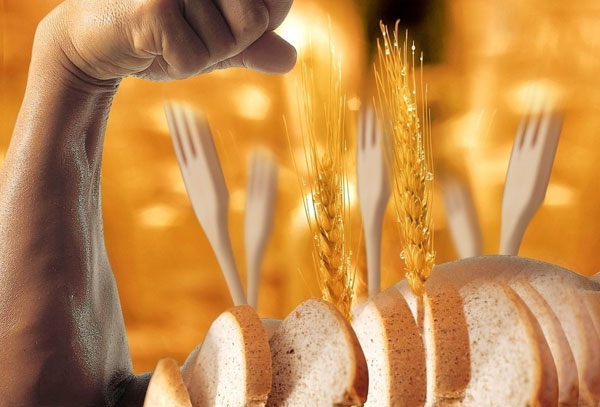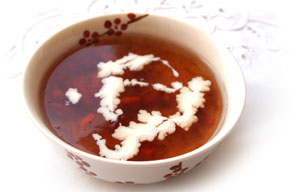
And so, there are the 90 raisins soaked in vodka to be administered three a day for 30 days for three years, or eggs and black beans marinated in black rice vinegar, or donkey glue dissolved in yellow rice wine - all to be taken faithfully until presumably you reach the ripe old age of 90 and you no longer have the mortal need for daily boosters.
Then there are the lists of super foods periodically put out by the best-known authorities in health and fitness, ranging from the American doyen of wholesome living, Oprah Winfrey, to her protege and current Time magazine health columnist Dr Oz.
There are lots of self-proclaimed experts as well, all gaining instant fame through the mighty machines of Twitter and Sina Weibo.
|
 |
|
Photo provided to China Daily. |
But if we look a little closer at these famous lists, take away the slightly bizarre and rare exotic cure-alls like chia seeds, acai juice, quinoa, twig tea and so on, you get the garden variety staples that normally inhabit the nutrition pyramid.
Whole grains, green leaves, orange vegetables like carrots and pumpkins, nuts, beans and eggs are recurring items on the lists of super foods put out by Oprah, Dr Oz, Joy Bauer and Woman's Day, for example.
Salmon, or other oily fishes, and sardines also inhabit the lists for their calcium and Omega-3 oil content.
It is no surprise that many "Chinese" products have made the lists, too.
Pu'er tea, green tea, red or adzuki beans, mung bean sprouts, bok choy, wolfberries, ginseng, cordyceps, fleece flower root, astragalus root, pomegranates and apricot kernels all look more at home in Chinese grocery or pharmaceutical stores, but they seem to have found a place in the supplement boutiques in the West as "super foods".
But let's get back to the basics and look at the definition of the term. There are several, and readers can take their pick.
Super foods are "nutritional powerhouse foods loaded with nutrients crucial to a healthy, long life", according to www.superfoodsrx.com, which goes on to define the principles that separate super foods from well, ordinary food.
Super foods are those that constantly show up in the diets of the world's healthiest populations, from data collected by highly respected studies done by institutions such as American Heart Association, the American Cancer Society, and the National Cancer Institute (US).
Super foods are whole foods, that is, food that comes in natural form, being unprocessed or minimally processed, so that "none of their nutritional characteristics have been intentionally modified".
Based on these classifications, we come full circle to the food pyramid and those familiar homilies that our mothers and grandmothers have been nagging us about.
Don't push aside the broccoli and Brussels sprouts. Eat your carrots. Finish your oatmeal or rice, depending on which hemisphere you come from. And most of all, avoid over-processed fast foods.
Super foods, it seems, are just ordinary wholesome foods given modern packaging, but they are also grim reminders that we have been so seduced by fast food and convenience foods that we have forgotten how to eat.
Mother was right. Eat your spinach.
Contact the writer at paulined@chinadaily.com.cn.

2013 Chinese New Year |

Hidden dragons, crouching tigers |

Soap beans, silver ears and peach gum |

Special:Winter Solstice |

People harvest grapes in Algerian vineyards |

23rd Autumn Moon Festival in San Francisco |

Koreans eat live octopuses during local food festival |

Moon cakes prepared for Mid-Autumn Festival |